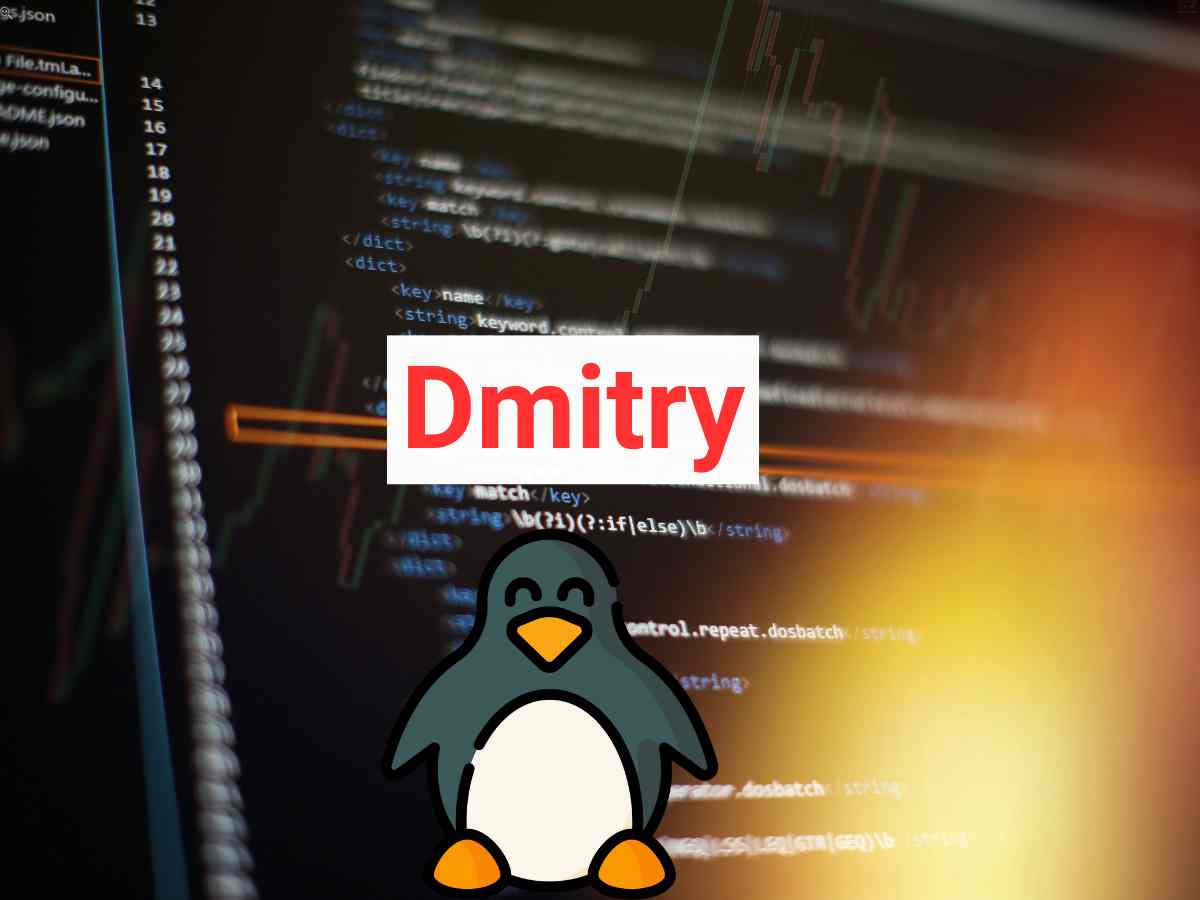**Note: The content in this article is only for educational purposes and understanding of cybersecurity concepts. It should enable people and organizations to have a better grip on threats and know how to protect themselves against them. Please use this information responsibly.**
Dmitry Overview
Dmitry, which stands for DeepMagic Information Gathering Tool, is a free and open-source utility available on GitHub. Designed for information gathering, Dmitry can be downloaded and installed on Kali Linux. This command-line tool helps collect valuable information about a target, which can be used for various purposes, including social engineering attacks. Dmitry is capable of gathering a wide range of important data.
Uses of Dmitry Tool
- Subdomain Search: Dmitry can be utilized to find subdomains of a target.
- Port Scanning: It helps identify open ports on the target system.
- TCP Scanning: The tool is capable of performing TCP scans.
- Netcraft Integration: Using the Netcraft service, Dmitry can obtain data such as the operating system, web server, web host, and hosting service details.
- WHOIS Lookup: It can gather data about registered domains, including the registrant’s name, address, and contact information.
- Email Discovery: The tool can find email addresses associated with the target’s domain.
Switches of Dmitry Tool
The Dmitry tool offers a number of commands that can be used with other commands. Different switches used with commands
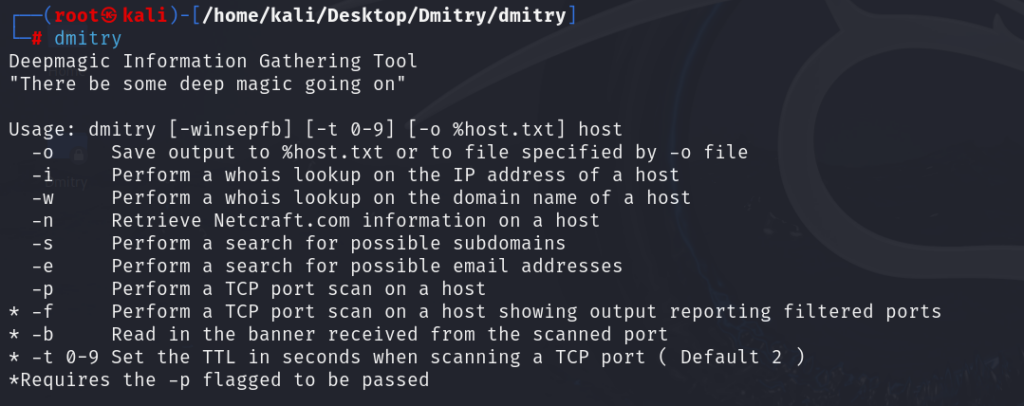
Installation of Dmitry Tool
Step 1: Launch the terminal in Kali Linux and navigate to the Desktop directory.
Step 2: Create a new directory named “Dmitry” on the Desktop.
Step 3: Enter the newly created Dmitry folder. This is where we’ll install and use the Dmitry tool.

Step 4. Confirm that you’re in the Dmitry directory. To obtain the Dmitry tool, we need to clone it from its GitHub repository. Use the following command to download and clone the tool:

Step 5: The Dmitry tool is now successfully installed on your Kali Linux system and is ready for use. To verify the installation and see the contents of the current directory, execute the following command in the terminal:
Command: ls
Step 6: After cloning, you’ll see a new directory named “dmitry” has been created. Navigate into this directory using the following
command: cd dmitry
once inside, list the contents of this new directory with:
Command: ls
Step 7: The file is now in the directory. To install, run the provided command. Command: Sudo apt-get install automake autoconf
This will automatically download all required dependencies.

Step 8: Once the dependencies are downloaded, use the following command to set the necessary permissions.
Command: chmod +x configure
Step 9: The tool now has execution permissions. Next, initialize the configuration file with this command:
Command: ./configure

Step 10: With the configuration file set up, we can now run the tool using the following command:
Command: make

Step 11: Execute the following command to install the tool:
Command: make install

Run the Tool and Get the Information About Any Target
To gather any basic data, we can run the tool and type the following command.

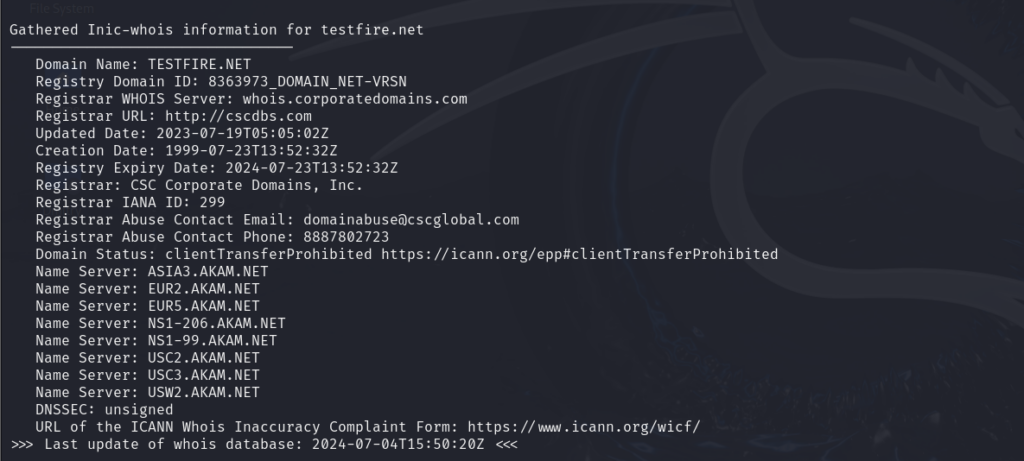
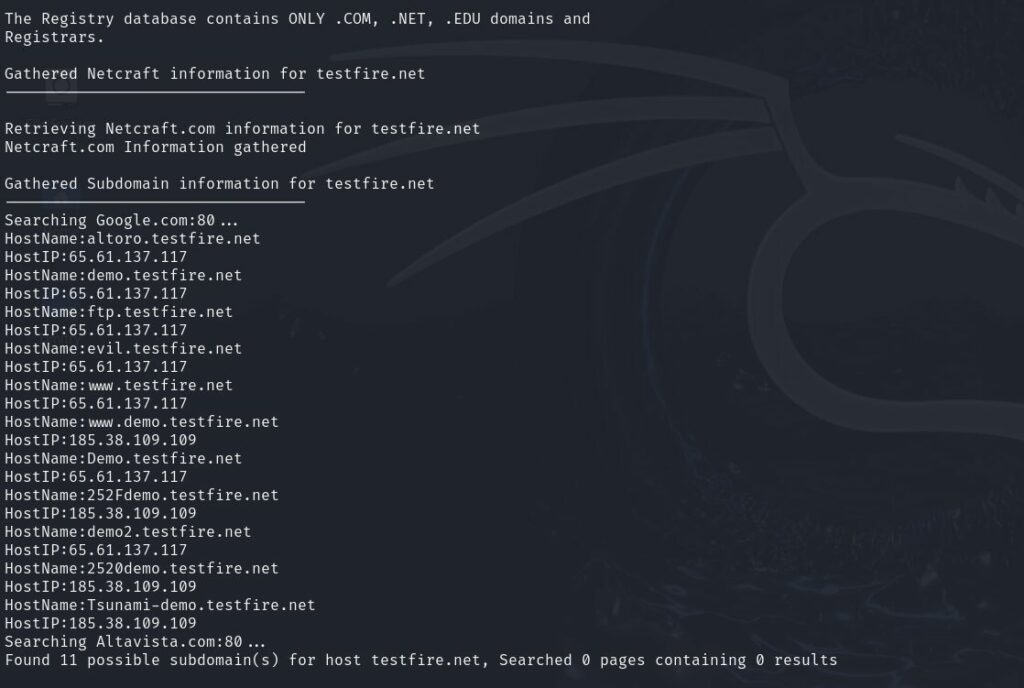
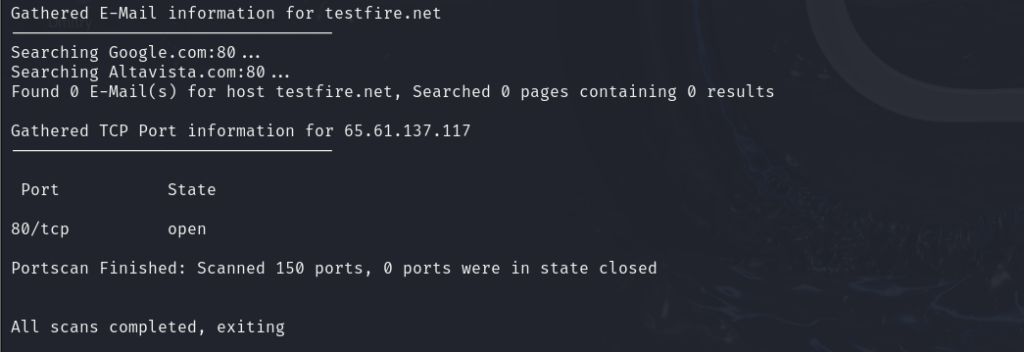
The tool can be run with various switches to gather specific target information.
Ethical Considerations:
While Dmitry is a powerful tool for authorized security assessments, it must be used responsibly. Always obtain explicit permission before gathering information on networks or systems you don’t own or control.
Limitations:
Dmitry may lack some advanced features of newer OSINT tools and could have outdated data sources without regular updates.
Summary:
Dmitry remains valuable for initial information gathering in cybersecurity, suited for both novices and experts. However, it’s often used alongside other specialized tools for comprehensive evaluations. Always use Dmitry ethically and in compliance with applicable laws and regulations.


